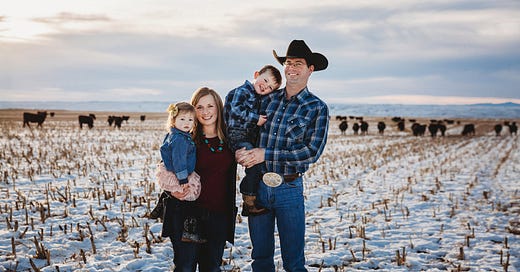Mother of the South Dakota rancher facing prison over pre-1950 fence calls on Trump for help
Heather and Charles Maude each face 10 years in prison and $250,000 in fines over an inherited fence built before 1950.
“President Trump keeps saying, ‘I am standing in the way; they are really going after you,’” says Randi Hamilton. “Those words keep going around in my head. These are just ordinary people trying to make a living.”
Randi and Tom Hamilton are asking the Trump Administration to intervene in their daughter and son-in-law’s case with the Forest Service (USFS)…




